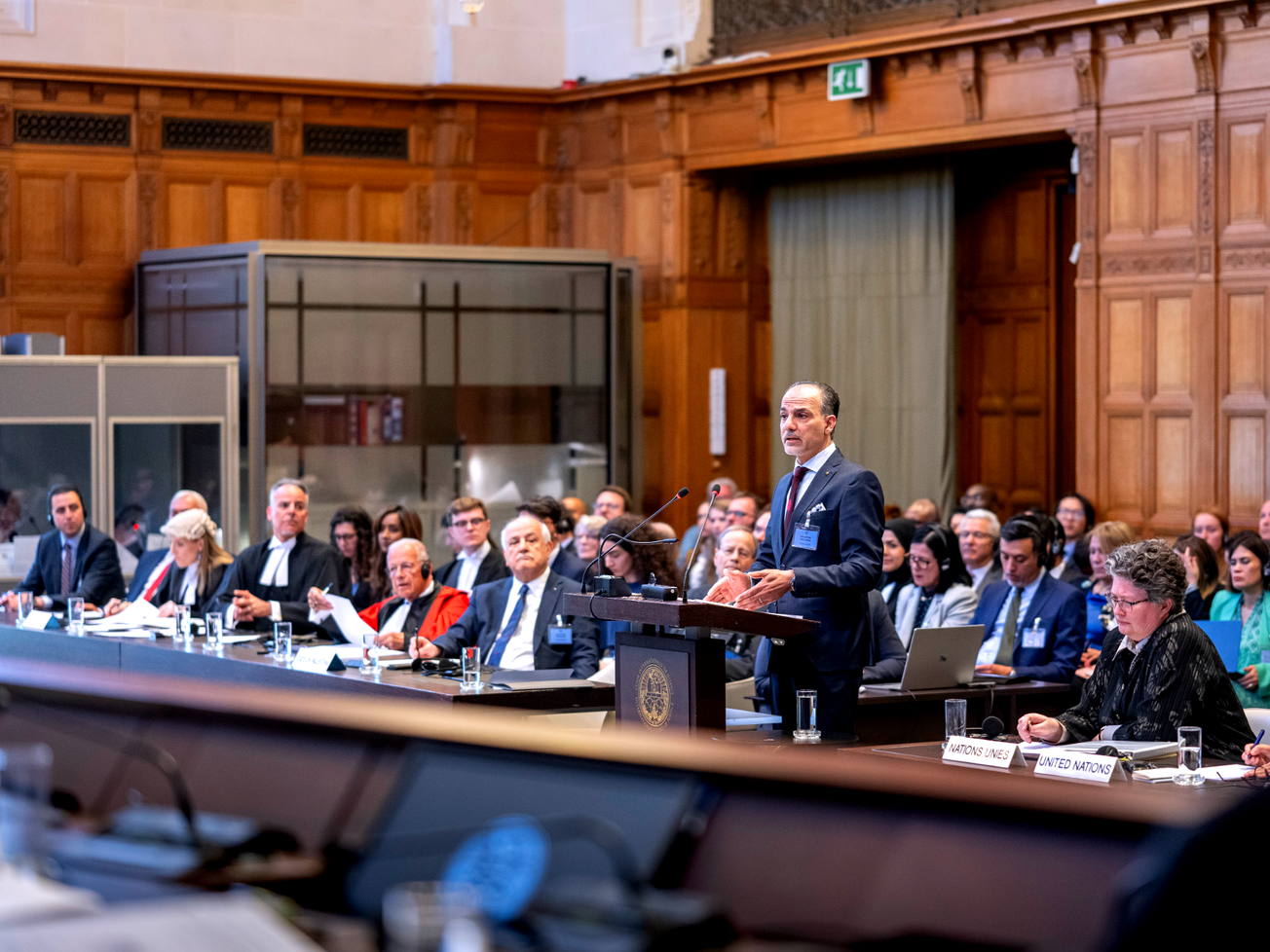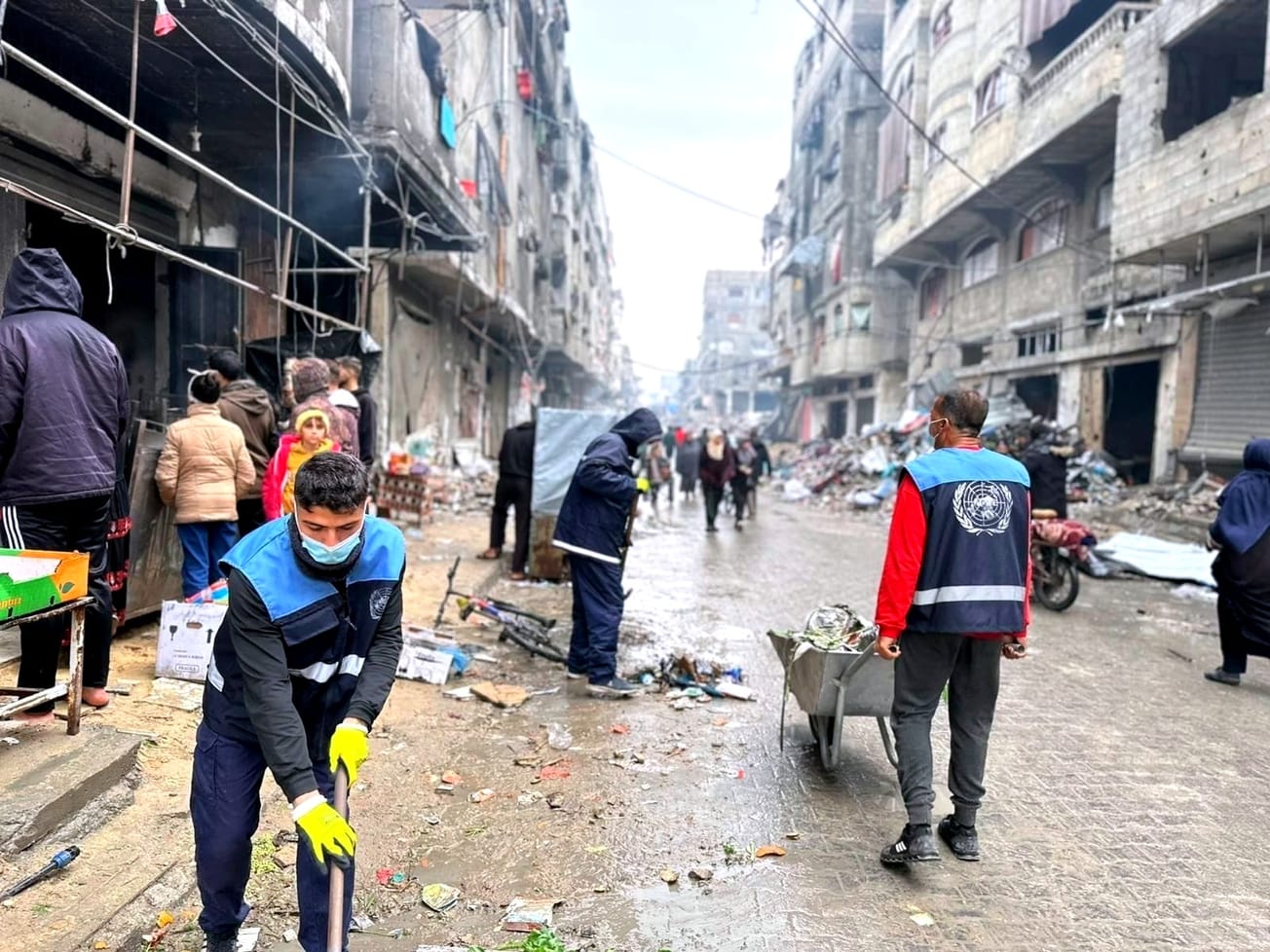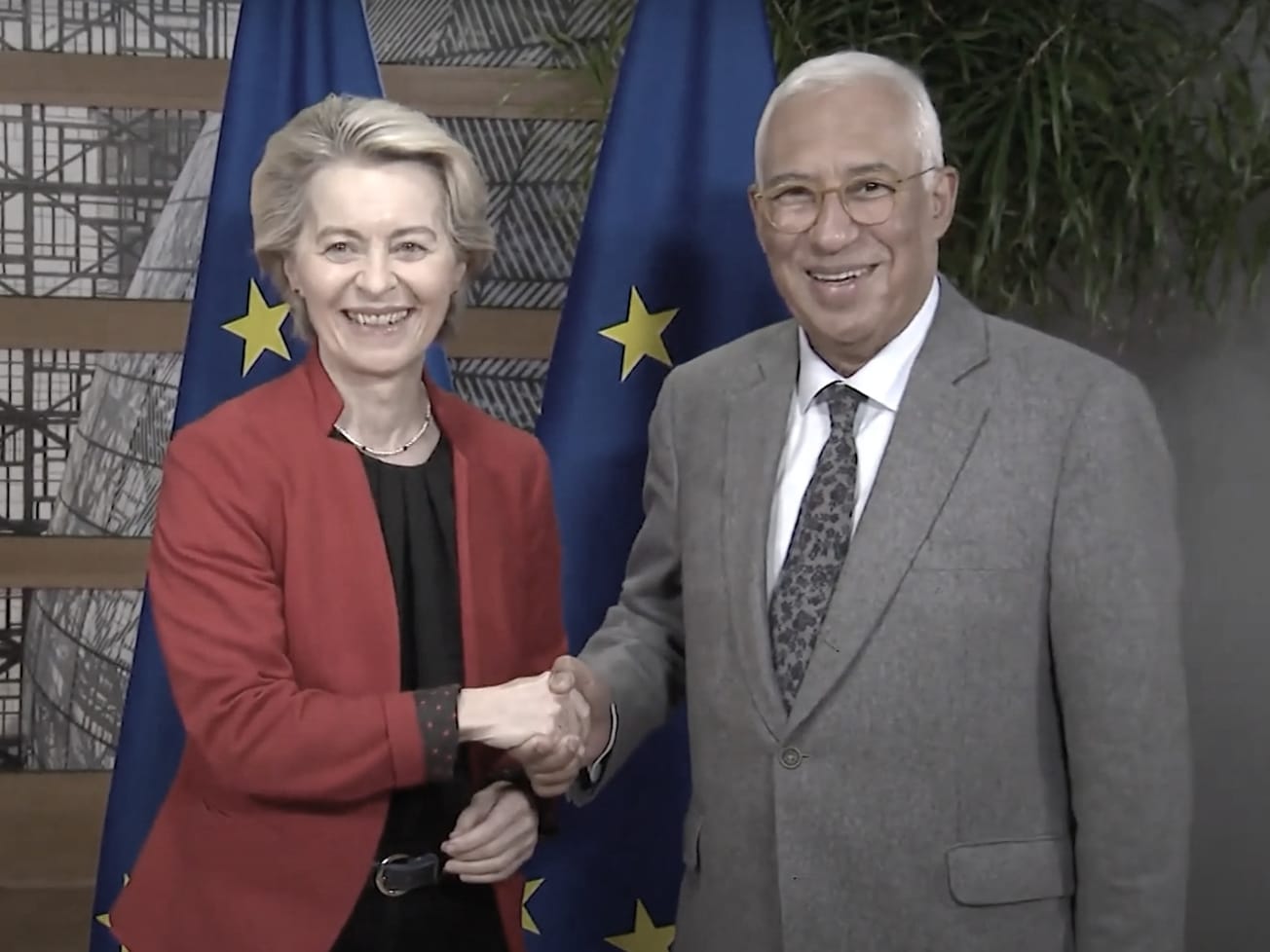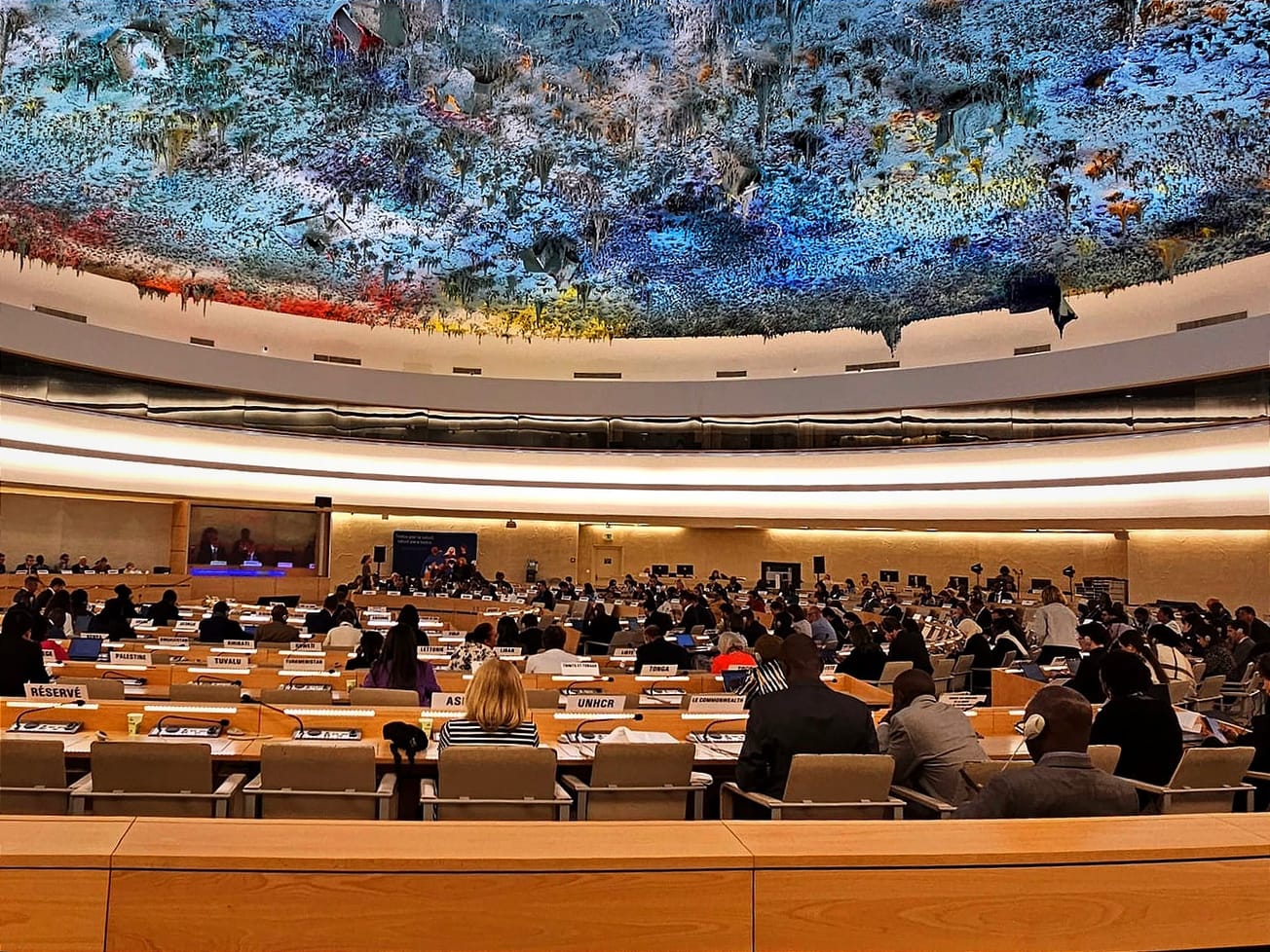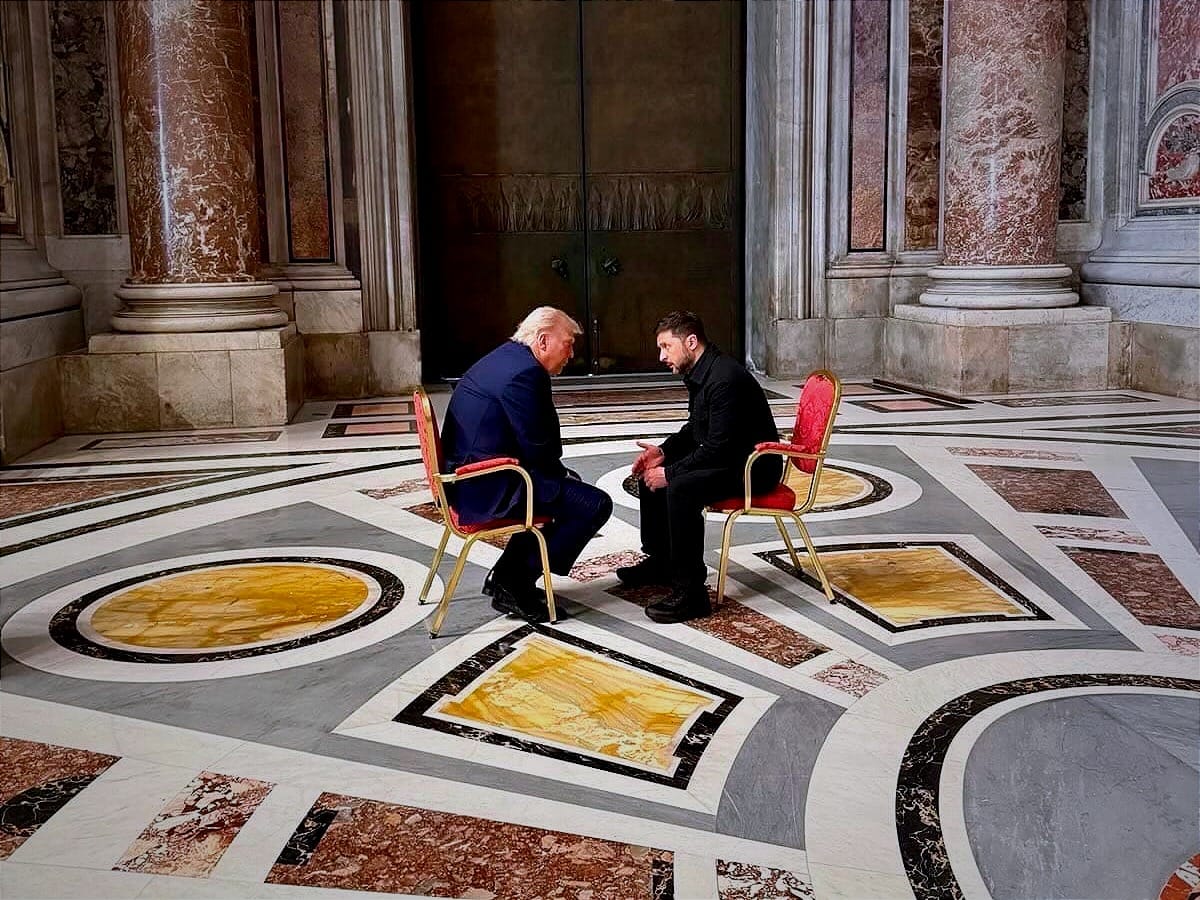The International Court of Justice opened public hearings to examine Israel’s obligations in the full-blown humanitarian crisis engulfing Gaza.
The United Nations' top court began weeklong public hearings in its chambers at The Hague, Netherlands, on Monday, in response to the U.N. General Assembly's request for a legal opinion. Since the start of the Israel-Hamas war, Israel's aid blockages have left Palestinians severely lacking food, water, fuel and medicine.
Supporters of the request approved last December said it was unacceptable for Israel to block life-saving aid for people in the occupied Palestinian territories.
Israel's parliament had passed legislation that effectively blocked the work of the U.N. agency that has been lifeline for Palestinian refugees in Gaza, the West Bank, and East Jerusalem since 1950.
On Friday, the World Food Program said it has run out of food for the 2 million inhabitants of the Gaza Strip as Israel blocks the entry of all humanitarian aid.
Several international organizations, including the African Union, Arab League, Organization of Islamic Cooperation and United Nations, and dozens of nations, including Brazil, China, France, Russia, Saudi Arabia and the U.S., were expected to present arguments this week.
"Israel is starving, killing and displacing Palestinians while also targeting and blocking humanitarian organizations trying to save their lives," Palestinian envoy to the Netherland, Ammar Hijazi, told the court. "These are the facts. Starvation is here. Humanitarian aid is being used as a weapon of war."
U.N. legal counsel Elinor Hammarskjöld said Israel has clear obligations under the international humanitarian law to facilitate aid since it is an occupying force. "These obligations," she said, "entail allowing all relevant U.N. entities to carry out activities for the benefit of the local population."
Israel, which will almost certainly ignore the court's opinion, boycotted the hearing but submitted written objections. In Jerusalem, Israel's foreign minister, Gideon Sa’ar, told reporters the hearing was "another shameful proceeding" meant to discredit his nation.
It could take months for the Hague-based ICJ's opinion to issue an opinion, which would be non-binding, but it likely would influence international legal disputes and public opinion.
Last year, the ICJ released a history advisory opinion that determined Israel’s occupation of Palestinian territory is illegal under international law and called on it to end its presence "as rapidly as possible." ICJ said Israel should pay full reparations for damages caused over the occupation since 1967.
ICJ also approved provisional measures calling on Israel to do all it can to protect civilians and prevent genocide in Gaza. The court order represented an interim victory for South Africa in its case accusing the Israeli military of genocide in Gaza, which Israel strongly denies. A final decision in that case is likely to take years.
The International Criminal Court issued arrest warrants last November for Israeli Prime Minister Benjamin Netanyahu and his former Defense Minister Yoav Gallant for war crimes and crimes against humanity in Gaza.
Also last year, the prosecutor of the International Criminal Court took the unprecedented step of seeking arrest warrants for alleged atrocities committed by the top leaders of Israel and the Palestinian militant group Hamas, which rules the Gaza Strip.

